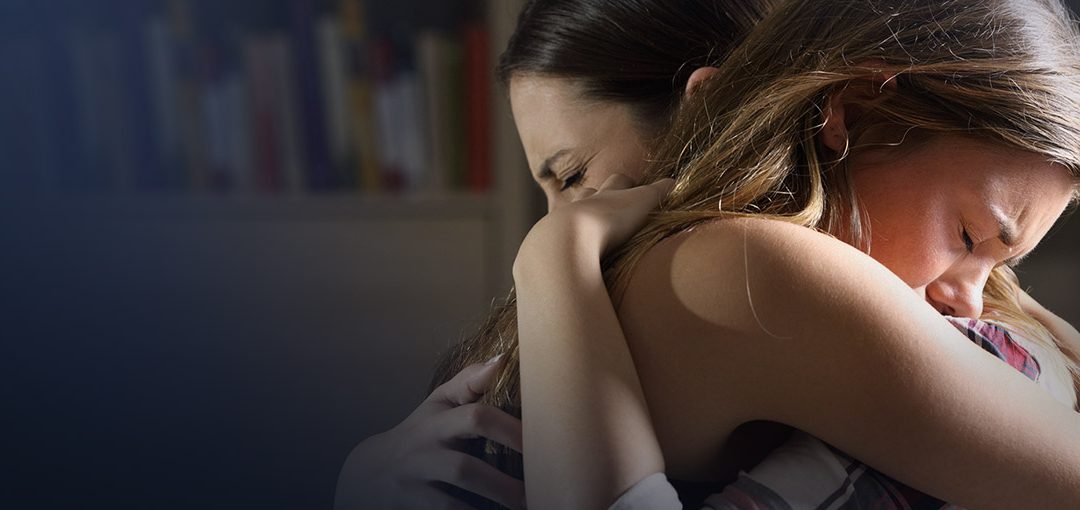
Image courtesy of FrameAngel at FreeDigitalPhotos.net
The Different Types of Abusive Dating Relationships
Unfortunately, sometimes teens get stuck in abusive dating relationships. There are three main types of abusive dating relationships: emotional, physical, and sexual. While this is definitely an uncomfortable topic, it is one I see in my office with my teenage clients at least once a month. That’s very common. Because of that, it’s important to know how teens are abused and what to do about it.
Teens in Emotionally Abusive Relationships
Emotional abuse is the most common form of abuse discussed by my clients. This happens when a client has a boyfriend or girlfriend who says and does things to manipulate a certain outcome. There are a few ways this can happen.
1. An Ex Threatens Suicide
Sometimes an ex will threaten suicide after a breakup. This heaps guilt on your teen, who consequentially starts talking to the ex again. This forces the teen to stay in a pressured, awful relationship.
2. Constant Criticism
Other times the abuser will be mean to and critical of your teen. After being consistently berated by their boyfriend or girlfriend, your teen will no longer have the self-esteem to end the relationship.
3. Drinking and Drugs
The abuser might get into drinking or drugs. This is confusing for your teen who might start lying for the abuser or even drinking and using themselves just to be with their boyfriend or girlfriend.
4. Financial Abuse
Lastly, sometimes the relationship gets out of balance, and your teen feels like they must impress their significant other to keep them around. Consequently, they start spending money on expensive hobbies or trips for them and their boyfriend or girlfriend.
Teens in Physically Abusive Dating Relationships
Sadly, physical abuse occurs in teen dating relationships as well. It often begins with your teenager becoming isolated from his or her friends and spending all their time with their boyfriend or girlfriend instead. Your teen might seem upset and withdrawn. They’ve lost the energy and spark they used to have. You start to wonder what is going on.
How Physically Abusive Relationships Progress
Your teen might have a great relationship at first. Your teen and their boyfriend or girlfriend might have discussed going to the same college or even getting married eventually. The relationship seems really serious considering their age.
When the Abuse Starts
Then the arguments start. One person has trouble controlling their emotions and reverts to yelling and cursing. Eventually the fight results in one person hitting the other. It probably isn’t anything too violent the first time, just a small push or slap. The abuser profusely apologizes and is on their best behavior for a few weeks. Then they become edgy, and eventually another fight starts resulting in more physical abuse. The cycle goes on and on, with the abuse getting worse each time.
Teens in Sexually Abusive Dating Relationships
Sexual abuse is any form of sexual activity that is unwanted and/or exploits the victim. This happens in teenage dating relationships from time to time. Sexual abuse usually happens when a couple is already sexually active. One partner says they don’t want to have sex anymore or secretly doesn’t want to, but the other coerces them into it. It’s not rape because the reluctant teen gave their consent, but unwanted sexual activity is never okay.
Sexual Abuse Through Phones
Another way sexual abuse occurs is through your teenager’s phone. Sadly, it’s normal for teenagers to ask each other to send nude pictures through text or an app. It is normally the boys asking the girls, but it goes both directions. Unwanted pressure to send nude selfies is awful. Check in with your teen to see if they’ve been asked and find out what they did about it. If the recipient of the image shows a friend or two, or texts it to someone else, that’s a major violation of privacy. If the teens are minors, it’s actually distribution of child pornography.
What to Do If Your Teen’s in an Abusive Dating Relationship
Dating is a normal part of the teenage experience. It helps them mature, and they can have a lot of fun with it. However, there’s also a lot of things to watch for. There is a lot to warn your child about. Help them if they are being abused in any way. Help them feel safe to talk about it and empower them to do something about it. Please call if you need additional support in helping your teenager through this heartbreaking situation.
Helping teens grow and families improve connection,
Lauren Goodman, MS, MFT



